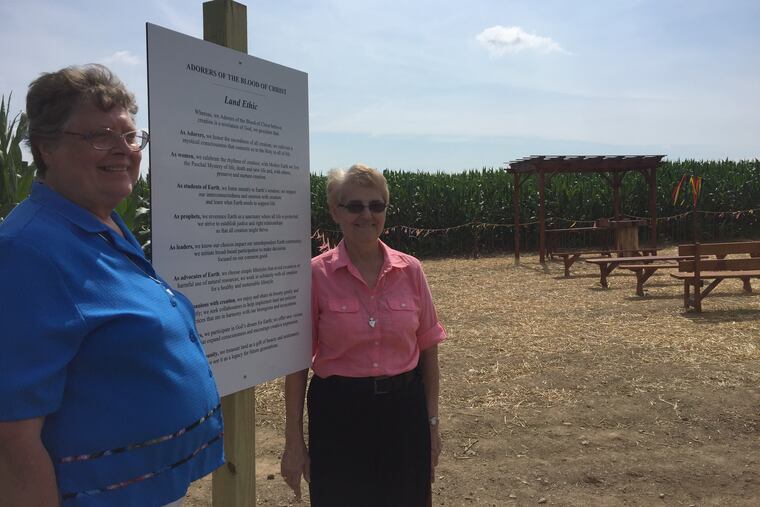Lancaster nuns lose federal court battle for compensation over gas pipeline
The Adorers of the Blood of Christ argued that the pipeline “represents a gross violation of their deeply held religious convictions.”

A federal appeals court in Philadelphia on Tuesday rejected a claim by a group of Roman Catholic nuns in Lancaster County who sought compensation for a pipeline on their property that they said violated their religious beliefs.
The Adorers of the Blood of Christ argued that the pipeline, approved by the Federal Energy Regulatory Commission and built several years ago by Williams Partners, “represents a gross violation of their deeply held religious convictions.” The nuns, who embraced an encyclical by Pope Francis against climate change and who have their own internal code of ethics that echoes the papal stance, said the pipeline violated their rights under the Religious Freedom Restoration Act.
However, a panel of three judges for the Third Circuit Court of Appeals said the nuns simply waited too long to voice concern and rejected the notion that they were entitled to compensation. The judges said the nuns should have voiced their objections during public hearings held by FERC in 2017. Instead, they waited until after the federal agency had approved the pipeline.
The judges wrote that if the nuns had taken issue during FERC’s process, the agency “may have denied or modified the conditions of [the company’s] certificate” to operate the pipeline.
“Under those circumstances,” the judges continued, “the Adorers would have, at the very least, had the opportunity to seek the [injunctive] relief they so desire.”
A spokesperson for the nuns said the religious order had no immediate comment.
At issue is a small portion of the 185-mile Atlantic Sunrise Pipeline being built by Transcontinental Pipeline Co. from the Marcellus Shale to the southern part of Pennsylvania and into Maryland.
The pipeline’s parent company, Williams Partners, notified the nuns in 2014 about plans to build the pipeline, and used condemnation proceedings to acquire an easement through a parcel the sisters own in West Hempfield Township. The company could do so because the pipeline was approved by the federal commission as serving a public use.
FERC notified the nuns of the process for pipeline approval in 2015 and invited them to participate, but they did not respond, according to court documents. FERC approved the pipeline in February 2017 after public hearings.
However, the nuns fought eminent domain proceedings when they began in the spring of 2017 and erected an arbor, suggestive of a chapel, at the site, virtually daring the company to tear it down. But they lost a legal challenge.
The nuns also filed a separate religious freedom civil suit, saying the pipeline violates their deeply held beliefs. The order had signed a pact in 2005 to protect the land, long before any mention of a pipeline.
Regardless, Williams, with FERC approval, began burying a 42-inch-diameter pipe under the farm and covered it with vegetation. Williams has permanent rights to a 50-foot-wide path on just more than one acre of the property. The nuns still have full use of the land and can farm on it.